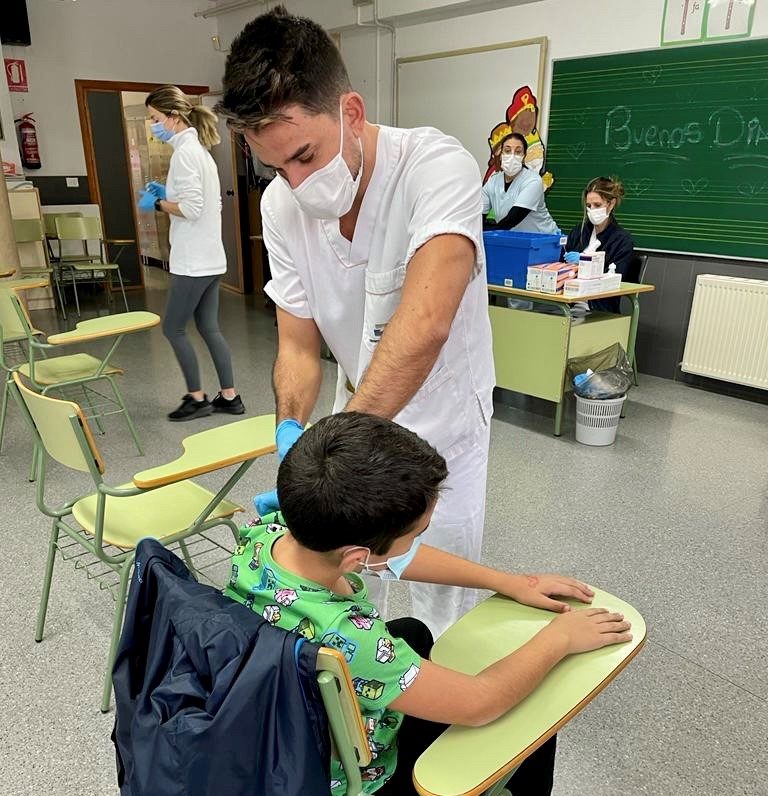On Wednesday this week, the vaccination campaign for some 150,000 children between 9 and 11 years of age began in schools across the Valencian Community. More than 10,000 children received their jab on the first day of the campaign.
The campaign will run until 22 December and will be resumed from 10 January for students from 5 to 8 years with a similar number of vaccines, to complete the nearly 330,000 first scheduled doses.
This process requires the express authorisation of parents, who in a majority – between 60% and 80%, according to the first estimates of the Ministry of Health – are approving the application of the vaccine.
“It has been decided to vaccinate in schools because that way it is easier to reach all students. It has been a common process for years and there is not much difference with mass vaccination centres,” explained the head of the Promotion of Health and Prevention in the Stages of Life of the Department of Health, Jose Antonio Lluch, at the CEIP Antonio Machado de València.
The campaign began in the special education centres, about 44 with about 2,000 students throughout the Community, and the rural centres, about 40 classrooms with 3,000 children.
Immediately afterwards are the 9- to 11-year-old students, but they are vaccinated by course, “because it is easier to follow the order of the classrooms”, Lluch details.
Parents may be present at the time of application of the vaccines, and each centre will have a doctor, nursing, and administration staff. In addition, an emergency protocol is always provided to attend to all possible eventualities.
Meanwhile, the Supreme Court of Justice of the Valencian Community (TSJCV) has rejected the extremely precautionary measures requested in two appeals against the child vaccination process in Valencia. The appeals had been filed by the Liberum Association and the father of a child enrolled in the Valencian Community.
In the case of the parent, the appeal was directed against the decision of the Generalitat Valenciana to obtain in 24 hours the authorisation of the families of children under 12 years of age to be vaccinated against the coronavirus, considering that it “infringes the right to privacy, the right to data protection, the right to health protection and the right to life whose protection is postulated through the process”.
In the order, the magistrates affirm that “the Administration’s interest in having its resolutions with a plurality of addressees take effect in relation to the pandemic that we still suffer is undoubted.”
In fact, they point out, the information sheet and the instruction is initially “in accordance with the measures adopted in relation to the pandemic, without violating the appellant’s fundamental rights, nor does it imply any attack on the data protection law of those vaccinated because vaccination is voluntary, and the instruction establishes precautions to that effect”.
Therefore, it concludes the dismissal of the precautionary request and adds, with regard to the irreparable damage or difficult repair that would make the adoption of the measure possible, that “it is not to be appreciated by this Court either, since such damage would only occur if vaccination were compulsory, and in this case it would have to be weighed against general interests”.
Regarding the appeal of the Liberum Association, it intended to challenge the de facto route of the Ministry of Health for the vaccination of children between 5 and 11 years of age in educational centres “without the due informed consent and lack of medical prescription.”
The court refers to the fact that the agreement for the vaccination of minors “details the beneficiaries of the vaccination, foresees adverse reactions and secondary effects and how to proceed in this eventuality, the place of vaccination (Educational Centres) and also foresees -a fundamental aspect – In any case, the authorisation of fathers, mothers, legal guardians to carry it out, without being able to vaccinate in the absence of said authorisation”.





